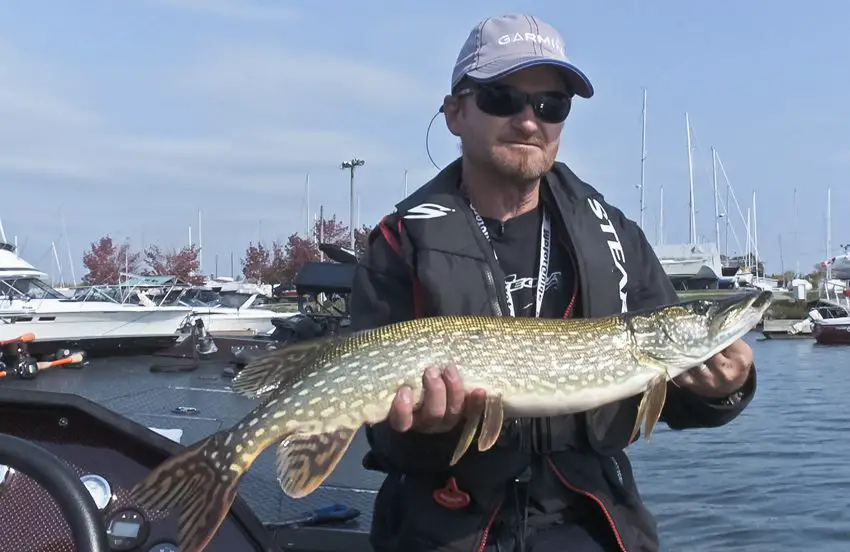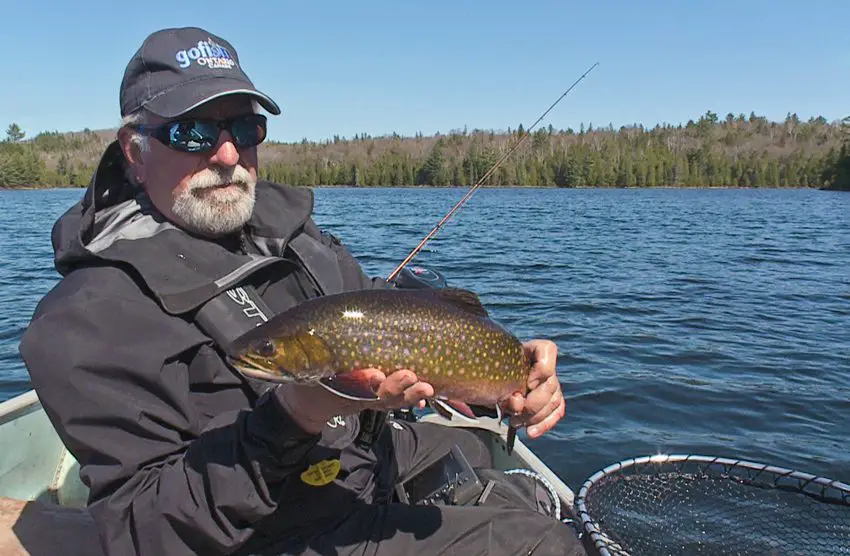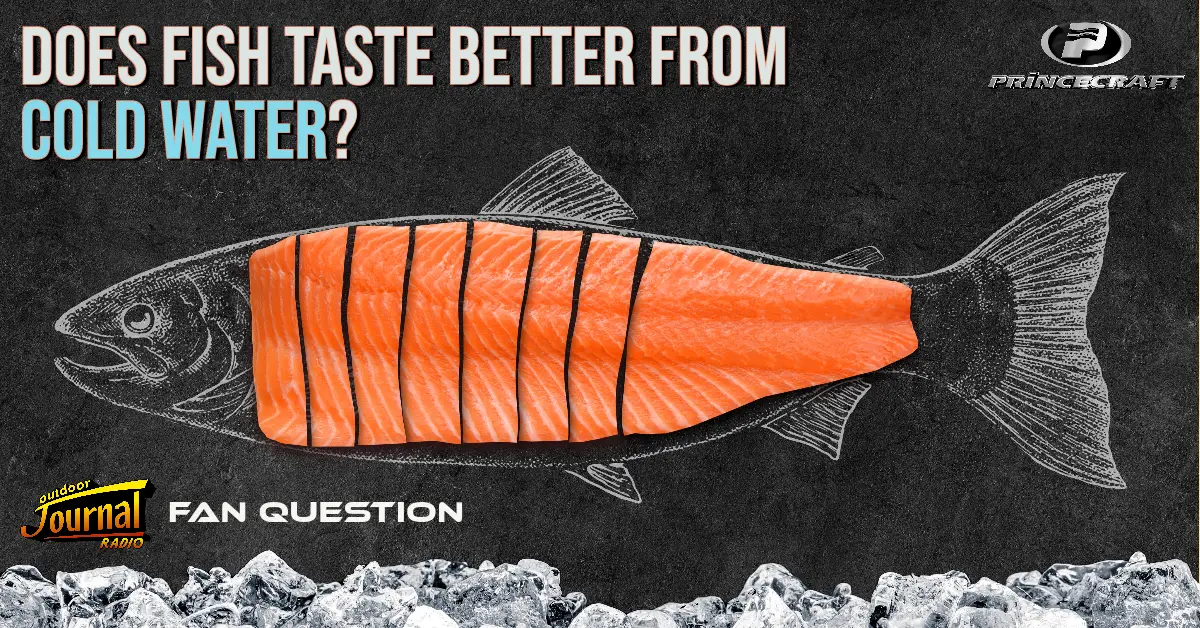Sponsored by Princecraft
Welcome to our new weekly feature, The Podcast Question of the Week! Each week we will summarize how the boys answered a question from one of The Outdoor Journal Radio podcasts and perhaps offer a little more insight into the topic.
The inaugural podcast question of the week comes to us from Carmine Bianco from Ontario.
Does a fish from cold, clear water actually taste better than fish from warm, stained water? Have you ever tested this?
Pete: Because I don’t eat bass, the only test I’ve done this is on are northern pike. I know that any pike I’ve ever caught from the north, even if the water’s not that clean, as long as the water is cold, is the most delicious fish out there.
And I have had pike from southern Ontario waters, in the summertime, when that water temperature gets in the mid-seventies, and I can honestly say that it is not as good to me.
Now, I don’t know what it is. Maybe it’s more “fishy” and you have to get rid of more of the fat layers off the fish, which sort of oozes into the rest of the flesh. If you miss any of it, it gets kind of that fishy taste. So, in my opinion, at least with northern pike, there is some validity to this.

Angelo: My observation would be this, and it only affects, trout at this point. If I have to compare the consumption of trout from a northern, deep, cold, clear lake to trout that you purchase in a store from a farm, and those farms are generally anything but deep, clear, cold-water habitats. It’s normally a shallow pond, which means a warmer climate. The two don’t even taste like the same fish, in my opinion.
People will say you’re usually enjoying a nice shore lunch and eating fish fresh from that cold environment right into a frying pan. They may have a point to some extent, but to me, you could never compare tastes. The two do not even taste like they’re from the same planet.
So, is it the cold, deep, clear water that makes them taste better? I sure believe that the cold water helps a lot. Clear, cold water really does help firm up the fillets.

Dean: I eat smallmouth bass pretty often. Besides pike, that’s probably the fish I eat most. I find anything you keep after July 1st, they all have black spots.
I also noticed you can get a lot of bass early in the year and late that don’t have it. I ate a smallmouth a week ago that didn’t have any. But, in July, they ALL have them.

We have a consensus that the colder the water the better the taste of the fish (one of the reasons the FNC team are such big fans of ice fishing). But don’t take the boys’ word for it, there is actual science to back up their opinions.
Here are 5 reasons why cold-water fish taste better:
- Fresher and Firmer Texture: Fish caught in colder waters tend to have firmer flesh and a more delicate texture. The chilly environment helps slow down the fish’s metabolism, reducing muscle breakdown and preserving its quality. As a result, you get fish fillets that are firm to the touch and incredibly tender when cooked.
- Richer Omega-3 Content: Fish from cold waters are often hailed as nutritional powerhouses. They tend to be higher in omega-3 fatty acids, which are not only heart-healthy but also contribute to a more flavorful fish. These essential fats enhance the overall taste profile and make your seafood dish all the more delectable.
- Lower Risk of Spoilage: When caught in lower temperatures, fish are less prone to bacterial growth and spoilage. The cold environment acts as a natural preservative, ensuring that your fish remains fresh for a more extended period. This means less risk of off-putting odors or flavors that can develop when fish spoil.
- High oxygen levels: Fish rely on oxygen to thrive, and higher oxygen levels in the water provide a healthier habitat for them. Photosynthesis occurs more rapidly at lower water temperatures, thus ensuring clean water and a healthy environment fish can thrive in. Complete photosynthesis maintains water cleanliness and sustains the well-being of all its inhabitants.
- Better quality of diet: Cold-water fish often have access to a diverse and natural diet, consisting of smaller fish, crustaceans, and plankton. This varied diet influences the flavor profile of the fish, introducing subtle notes that reflect the marine ecosystem. These flavors are not only unique but also contribute to the complexity and depth of the fish’s taste.
If you are planning to do some cold water fishing this fall, check out






